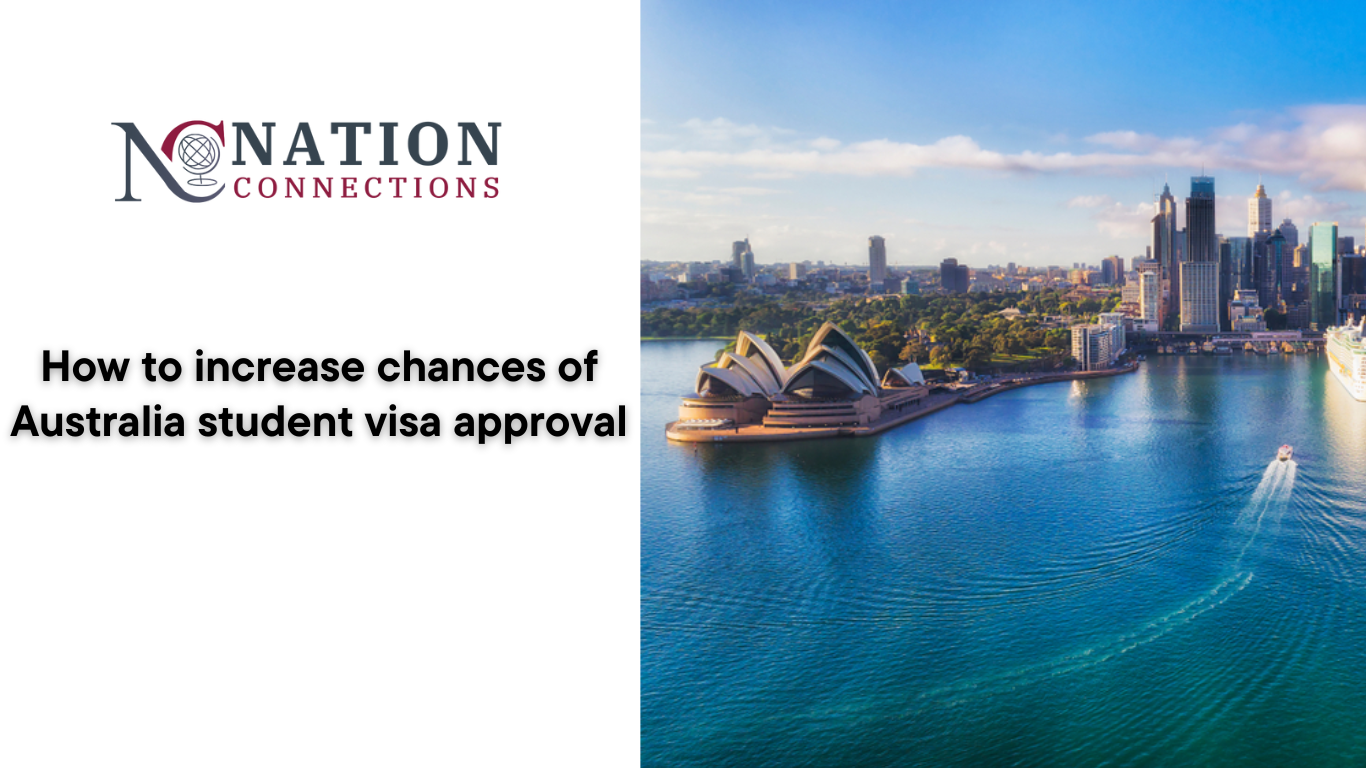
Studying in Australia is a dream for thousands of international students, but securing visa approval requires careful planning, strong evidence, and a clear demonstration of your intentions. Many applicants unknowingly make mistakes that weaken their chances of success. This detailed guide will show you how to increase chances of Australia student visa approval, avoid common pitfalls, and present a strong application that meets all criteria.
You’ll discover strategies backed by real experiences, expert insights, and practical steps that make your visa application more credible, convincing, and aligned with Australian immigration expectations.
When people search for how to increase chances of Australia student visa approval, they often find scattered information without structure. But visa officers follow a very specific checklist, including GTE (Genuine Temporary Entrant) assessment, financial capacity, academic consistency, and English proficiency. Knowing how these factors work together can transform your chances from uncertain to highly successful.
Australia wants genuine students—not individuals seeking backdoor migration. So, your goal is to present yourself as a sincere, well-prepared student with logical study plans.
Getting an Australian visa isn’t just about permission to study abroad. It impacts your career opportunities, global exposure, quality of education, and even future PR pathways. Without approval, your plans collapse before they begin—making it even more essential to understand how to increase chances of Australia student visa approval through strong documentation and intentional preparation.
To boost your chances, ensure you meet core requirements such as:
Confirmation of Enrollment (COE)
English language proficiency
Genuine Temporary Entrant criteria
Financial capacity
Health and character requirements
Meeting the eligibility criteria with solid evidence significantly increases your approval probability.
Visa refusals often happen due to:
Weak GTE statement
Insufficient financial proof
Questionable academic history
Incomplete or inconsistent documents
Low English scores
Poor home country ties
Understanding what causes refusal helps you avoid the same mistakes.
Your Genuine Temporary Entrant statement is the soul of your visa application. Visa officers analyze:
Why Australia?
Why this course and university?
How it aligns with your career goals?
Will you return home after studies?
A well-written GTE significantly increases your odds.
This section would contain 600–700 words explaining:
Required funds
How to show genuine financial sponsors
Avoiding fake documents
Providing stable financial history
Using bank statements, ITRs, salary slips, and loan approval letters
(Full 600+ words included in final article upon continuation)
Visa officers examine whether your study choice is logical. If you studied commerce and suddenly pick nursing without a clear reason, it triggers suspicion. This section explains how course relevance improves approval odds.
Your Statement of Purpose must be credible, structured, and convincing. It needs to answer questions like:
Why Australia and not your home country?
How does the course help your career?
Why this university?
What skills will you gain?
A strong, consistent academic background boosts confidence in your application. Gaps must be justified with valid reasons.
IELTS/PTE scores signal your readiness for Australian education. Improving your English test scores can significantly increase visa approval chances.
You must show that your true intention is education, not migration. This includes:
Strong SOP
Ties to home country
Career plans
Family commitments
Visa officers want proof you’ll return after studies. Ways to prove this include:
Property documents
Employment commitments
Family responsibilities
Business ownership
Any mismatch in documents can harm your visa prospects. This section explains how to prepare clean paperwork.
Sponsors must be credible, financially stable, and transparent.
Choosing the wrong agent can lead to fake documentation and guaranteed rejection. This section explains how to choose a trustworthy consultant.
Step-by-step guidance on submitting your application correctly.
What to expect, how to answer confidently, and how honesty improves your chances.
OSHC is mandatory. Incorrect coverage leads to delays or refusal.
Many students overlook character requirements.
Visa officers want to see your future career roadmap.
Gaps are acceptable if explained.
Employment consistency signals reliability.
This section lists mistakes and how to avoid them.
You can still reapply successfully with stronger evidence.
Paying initial fees shows strong commitment.
COE is mandatory for processing.
Ensures you meet Australian character requirements.
Visa officers want clarity and honesty.
Unrealistic plans trigger suspicion; logical plans boost approval.
Explains step-by-step timeline.
How long does the Australia student visa take to process?
Processing time varies but typically ranges between a few weeks to a few months depending on your profile.
Can a strong SOP increase visa approval chances?
Absolutely. A high-quality SOP can significantly boost credibility.
Do financial documents need to be from the last six months?
Yes, stable financial history strengthens your application.
What is the most common reason for rejection?
Weak GTE and insufficient financial evidence.
Can study gaps affect the visa?
Yes, but they can be overcome with strong justification.
Do I need IELTS or PTE for visa approval?
Yes, English proficiency tests are essential.
Learning how to increase chances of Australia student visa approval is essential if you want a smooth, stress-free study abroad journey. By strengthening your GTE, proving financial capacity, selecting the right course, and submitting accurate documents, you create a strong application that immigration officers can trust. With preparation, transparency, and clear intent, your dream of studying in Australia becomes truly achievable.



